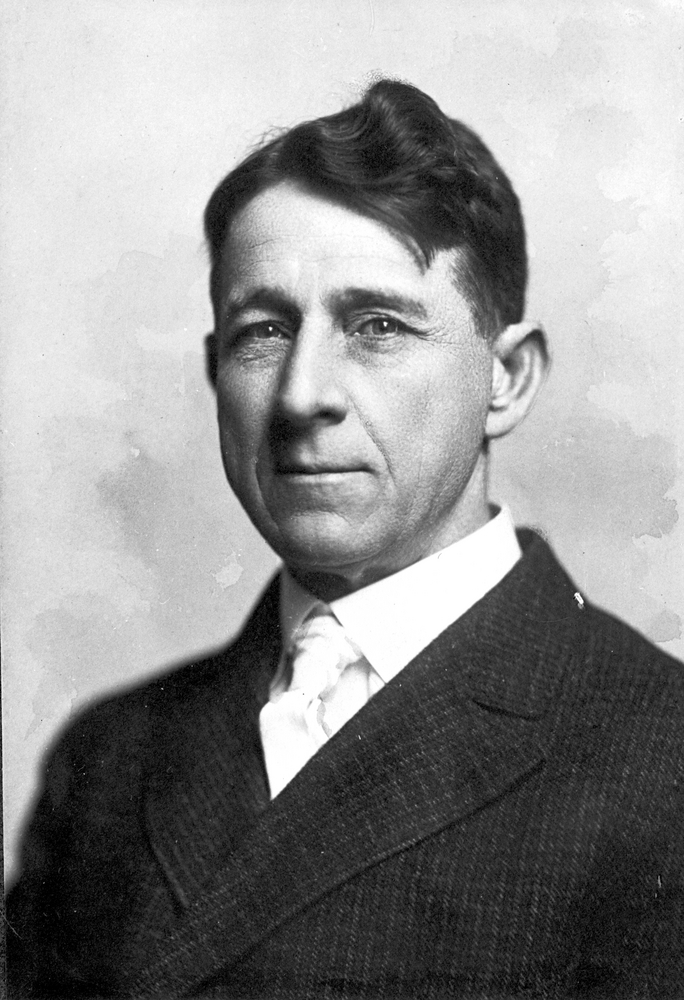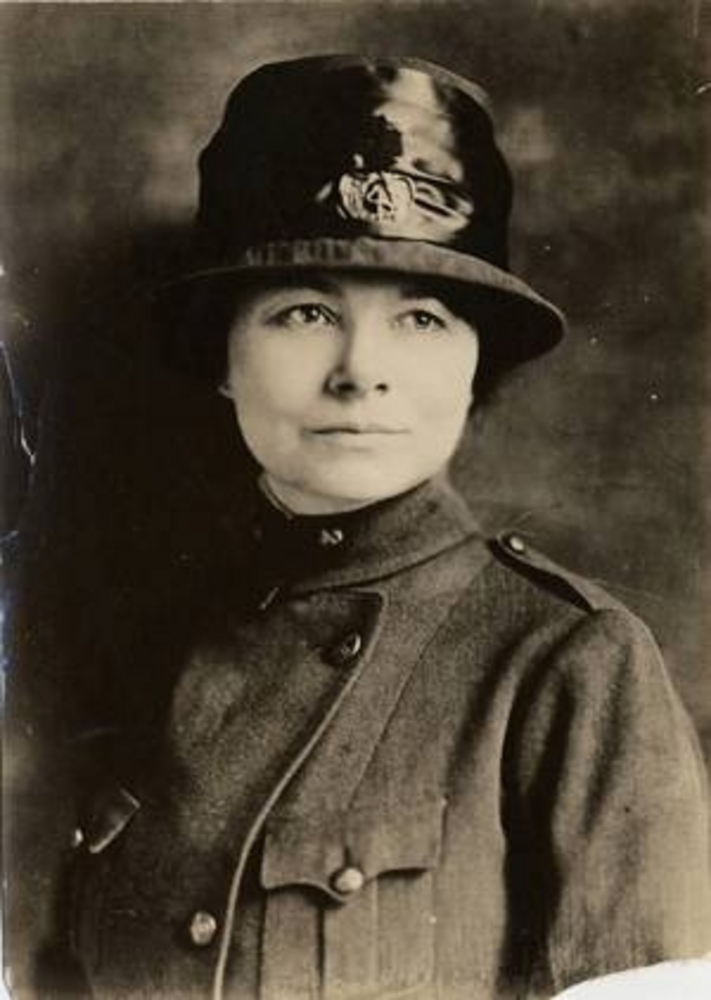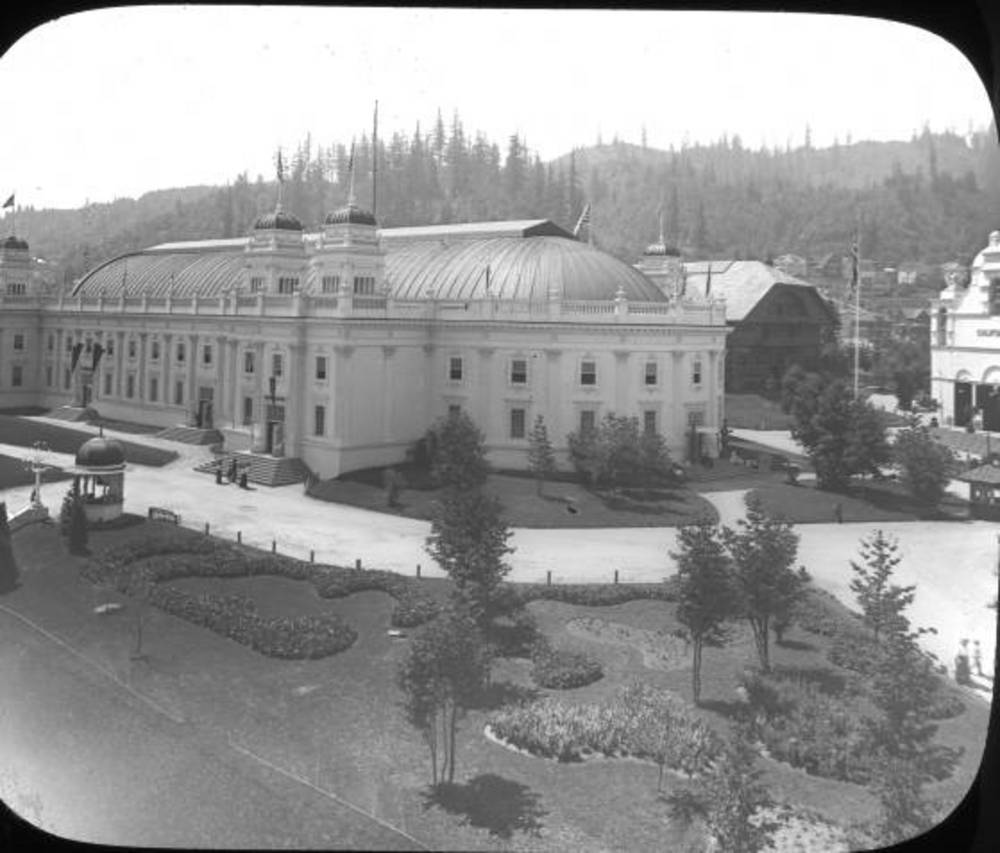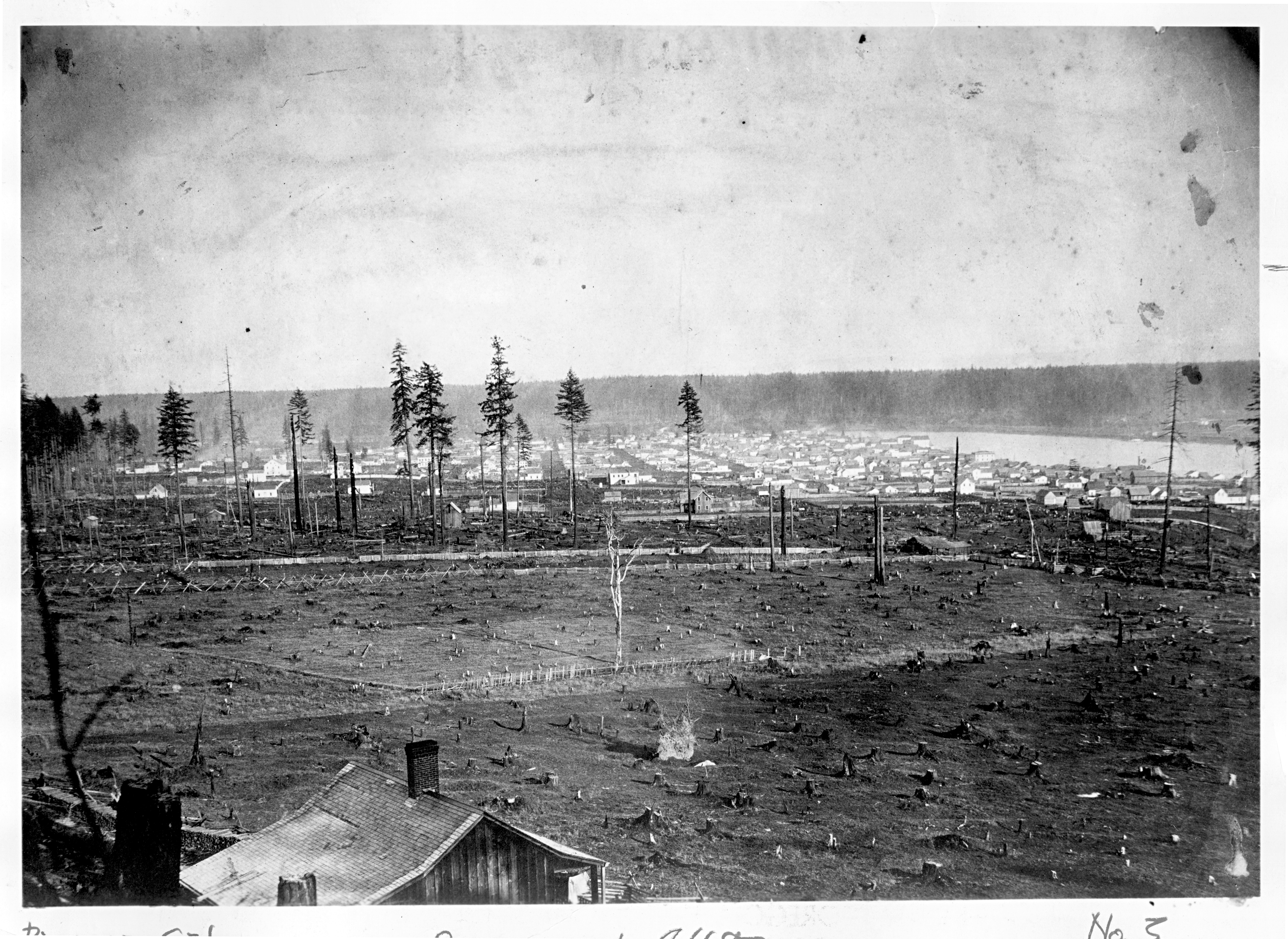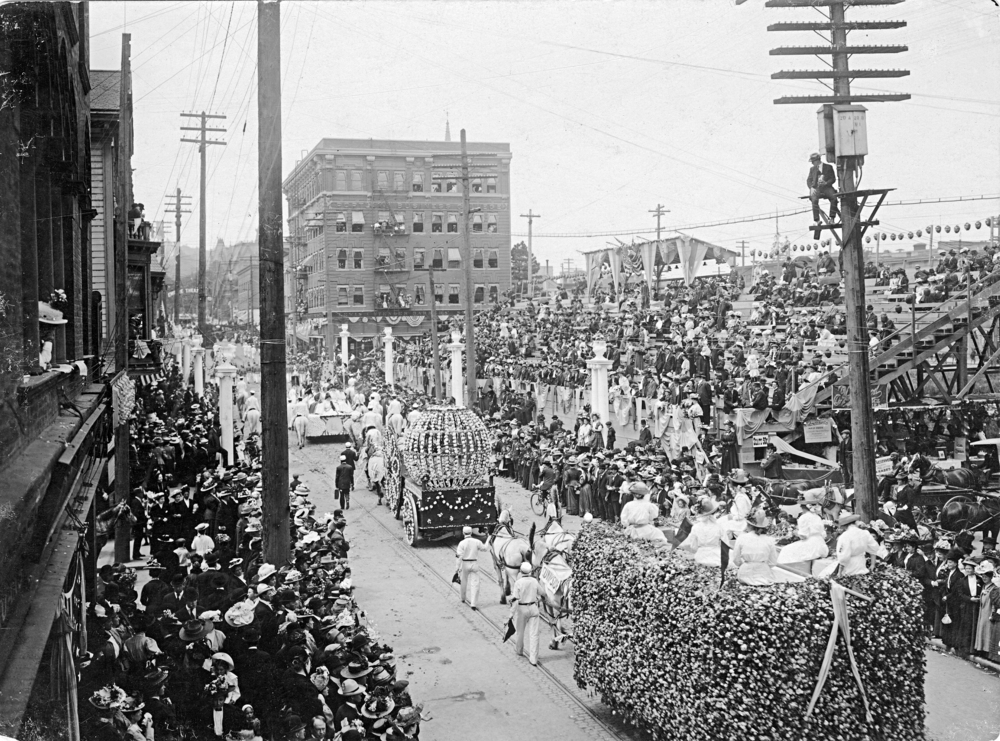Harry Lane epitomized the spirit and activism of Oregon’s progressive reform era, as a physician and public health advocate, a two-term Portland mayor, and a United States senator. He challenged injustice in the medical profession, worked for reform in public health and Indian policy, supported women’s rights, battled the power of big business and machine politics, and opposed the nation’s entrance into World War I. Lane was from a prominent Oregon Democratic family, but he followed his own political vision and created a legacy of independent progressivism in Oregon.
Born in Corvallis on August 28, 1855, Lane was the son of Eliza Jane and Nathaniel Lane and the grandson of Joseph Lane, Oregon’s first territorial governor and U.S. senator. He graduated from Willamette University Medical School in 1876. After additional study in New York and Europe, Lane set up a medical practice, first in San Francisco and then in Portland. Lane married Lola Bailey (Clary) in 1882. They had two daughters, Nina (McBride, Faubion) and Harriet (Hicks, Hempstead), and adopted a third, Marjorie (Ramsay).
An early member of the Oregon State Medical Society in 1877, Lane served as president of the Portland City and County Medical Society and the Oregon State Medical Society. He was director of the Oregon State Hospital for the Insane from 1887 to 1891, and his investigations of corruption put him at odds with contractors, administrators, and politicians.
Lane served on Oregon’s first state board of health from 1903 to 1906 and worked for clean water, pure food, and disease prevention, particularly tuberculosis. Throughout his medical career, he treated Portlanders in need without charge and was known as the “poor people’s doctor.”
Elected mayor of Portland in 1905 and again in 1907, Lane fought for public health measures, regulation of railroads and public utilities, and effective city planning and services. He battled “special interests” in business, fraudulent contractors, prostitution, and gambling. Lane took office during the 1905 Lewis & Clark Exposition and called for the creation of what would become the Portland Rose Festival. A supporter of women’s rights, he campaigned for women's suffrage and appointed Esther Pohl (Lovejoy) as Portland’s first city health officer and Lola G. Baldwin as the first policewoman in the nation.
A Democrat, Lane was elected to the U.S. Senate in the tumultuous 1912 campaign, which brought Woodrow Wilson to the presidency. He championed the wider adoption of the Oregon System—initiative, referendum, and recall—and supported government control of utilities and the breakup of monopolies. He challenged United States imperialism and was an advocate for tribes as a member of the Indian Affairs committee.
Lane was one of six senators who opposed the entrance of the United States into the World War I in April 1917. Most Oregonians condemned his actions and asked for his recall in scathing attacks. With this stress, Lane’s poor health worsened, and he died while returning home for recuperation on May 23, 1917. Since his death, Oregonians and historians have come to see Lane’s position as a courageous one and count him as a leading Progressive Era reformer.
-
Lane, Harry, bb002608.
Harry Lane. Oreg. Hist. Soc. Research Lib., bb002608
Related Entries
-
Esther Clayson Pohl Lovejoy (1869-1967)
Physician Esther Clayson Pohl Lovejoy took an active and significant ro…
-
![Lewis and Clark Exposition]()
Lewis and Clark Exposition
Portland staged its first and only world's fair from June 1 through Oct…
-
![Lola Greene Baldwin (1860-1957)]()
Lola Greene Baldwin (1860-1957)
On April 1, 1908, Portland Mayor Harry Lane administered the police oat…
-
![Portland]()
Portland
Portland, with a 2020 population of 652,503 within its city limits and …
-
![Portland Rose Festival]()
Portland Rose Festival
In 1905, when Portland Mayor Harry Lane addressed a crowd at the Lewis …
-
Woman Suffrage in Oregon
The campaign to achieve voting rights (also called suffrage or the fran…
Map This on the Oregon History WayFinder
The Oregon History Wayfinder is an interactive map that identifies significant places, people, and events in Oregon history.
Further Reading
Holbo, Paul S. “Senator Harry Lane: Independent Democrat in Peace and War.” In Experiences in a Promised Land: Essays in Pacific Northwest History. Edited by G. Thomas Edwards and Carlos A. Schwantes. Seattle: University of Washington Press, 1986, 242-59.
Johnston, Robert D. The Radical Middle Class: Populist Democracy and the Question of Capitalism in Progressive Era Portland, Oregon. New Haven: Princeton University Press, 2003.
MacColl, E. Kimbark, with Harry Stein. Merchants, Money and Power: The Portland Establishment, 1843-1913. Portland: Georgian Press, 1988.

